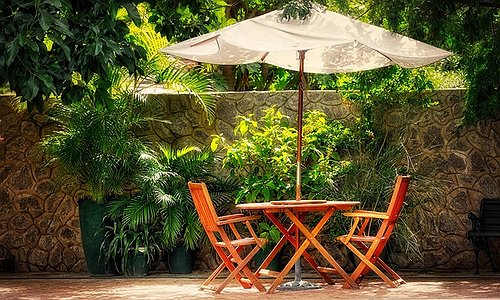The Karoo's quiet tech revolution starts with water
A harsh climate makes the Karoo ideal for testing
The Karoo’s semi-arid climate and patchy infrastructure have created conditions that are harsh but ideal for experimentation. If a water system works here, amid low rainfall, high evaporation, and vast distances, it can work almost anywhere. This makes the region a “living lab” for hydrology startups focused on groundwater management, aquifer monitoring, and decentralized purification technologies. The demand is local, but the implications are global. What succeeds in the Karoo could be scaled to other drought-prone areas, from Namibia to California.
Real projects are already underway
This isn’t theoretical. Several major initiatives are already using the Karoo as a launchpad for innovation.
One example is Bosch Projects, which has partnered with the Development Bank of South Africa to deliver water and sanitation masterplans across Karoo municipalities. Their work includes non-revenue water management, a critical strategy to reduce loss and leakage in rural networks.
Then there’s NuWater, a Cape Town-based firm that installed a solar-powered reverse osmosis system to provide potable water for a remote Karoo property with heavily mineralised borehole water. Their setup combined media filtration, membrane tech, and renewable power—exactly the kind of integrated solution needed in off-grid regions.
The Council for Geoscience is also active in the area, conducting deep drilling and hydrogeological surveys in Beaufort West. Their research uncovered a large aquifer supplying over 33 million litres of clean water per month, enough to support local communities and unlock further development.
Smart wells and groundwater mapping
Startups and consultancies are now focusing on making wells smarter. Remote sensors are being installed in boreholes to monitor flow rates, detect contamination, and manage extraction in real time. Combined with satellite data and AI-based aquifer modelling, these systems help municipalities and farmers avoid over-extraction and extend the life of their water resources. A consortium including Groundwater Africa, Maluti GSM, and North-West University is already building open-source groundwater planning tools for the Karoo basin. These include transmissivity maps and predictive yield models, tools that could guide everything from infrastructure spending to climate adaptation planning.
A business case, not just a development play
What makes this more than an NGO story is the emerging business case. Reliable water access is fundamental to agri-processing, tourism, and rural manufacturing. Investors eyeing the Karoo aren’t just thinking about social impact, they’re seeing opportunities in building infrastructure that allows for long-term economic activity. A hotel group can’t expand if its boreholes are unreliable. A wool co-op can’t grow without stable water for washing and processing. Water security is economic security, and the Karoo is finally being recognised as a region where water innovation can unlock real returns.
The way downstream
The Karoo won’t become a Silicon Valley for water-tech overnight. But the fundamentals are there: extreme conditions, real demand, low infrastructure lock-in, and a growing set of public-private partnerships.




